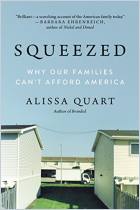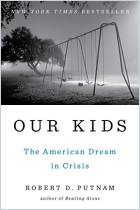Acesse a sua conta getAbstract para obter o resumo!

Acesse a sua conta getAbstract para obter o resumo!
Richard V. Reeves
Dream Hoarders
How the American Upper Middle Class Is Leaving Everyone Else in the Dust, Why That Is a Problem, and What to Do About It
Brookings Institution Press, 2017
Sobre o que é?
American inequality manifests most in the widening gulf between those in the top 20% and everyone else.
Recommendation
Most discussions about increasing economic inequality in the United States focus on the disparity between the top one percent and the rest of the population. But as Brookings Institution fellow Richard V. Reeves points out, the upper middle class is separating from the rest of society at an alarming rate. The upper middle class, which makes up the top economic quintile along with the very wealthy, now holds more than 50% of the nation’s wealth. What’s worse, the top 20% has constructed a highly effective “glass floor” that protects its members from a precipitous fall into the middle class or lower. Reeves shows how the upper middle class wields such tools as exclusionary zoning laws, legacy preferences in college admissions and unpaid internships to shield itself against competition from below. As a member of the upper middle class himself, Reeves is able to reveal these unfair practices without sounding like an anticapitalist ideologue. And he enlivens this relatively dour subject with generous doses of dry wit. This study will benefit policy makers, education reformers, social reformers and labor advocates, and it may spark some soul-searching among the more fortunate.
Summary
About the Author
Senior fellow at the Brookings Institution Richard V. Reeves co-directs Brookings’s Center on Children and Families.























Comment on this summary